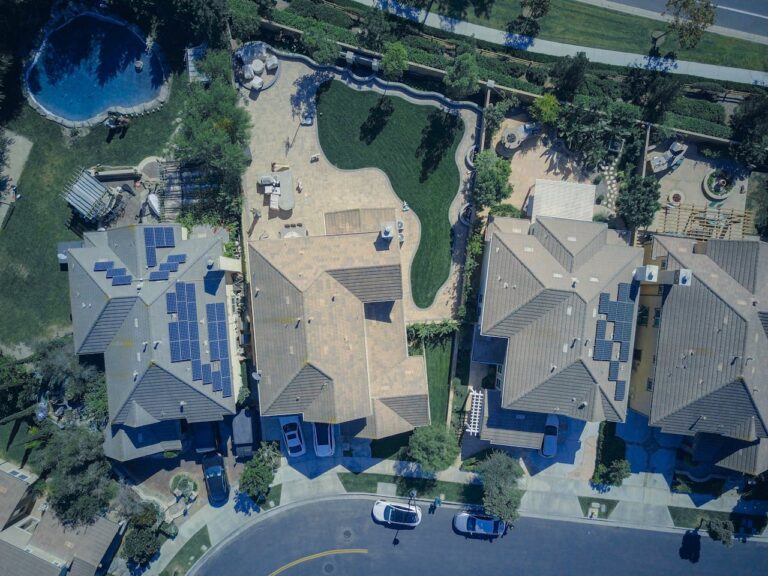Imagine you’re co-owning a beautiful vacation home with your siblings, enjoying sunlit mornings and family barbecues. The dream is perfect until life throws a curveball—disagreements arise, schedules conflict, or perhaps financial needs shift. Suddenly, the shared ownership becomes a tangled web of emotions and decisions. This is where the concept of a Forced Sale / Partition comes into play in real estate. It’s a process that can untangle the complexities of shared property ownership and offer a way forward when consensus seems impossible. Let’s delve into the details of what a forced sale or partition means and how it can impact property co-owners.
What is Forced Sale / Partition?
At its core, a Forced Sale / Partition is a legal procedure that resolves disputes among co-owners of a property. When parties no longer agree on the use or management of the property, one owner can initiate a forced sale or partition. This typically results in either selling the property and dividing the proceeds or physically dividing the property if it’s feasible.
- Forced Sale: The entire property is sold, and the profits are distributed among the co-owners based on their ownership share.
- Partition: The property is physically divided into separate parcels if possible, allowing each owner to retain individual ownership.
Understanding these options can be crucial for co-owners facing disagreements. For more insights, explore Partition of Property Explained.
The Forced Sale Process: Step-by-Step
Navigating a forced sale is not straightforward; it involves several legal steps and considerations. Here’s a simplified breakdown of the process:
- Filing a Lawsuit: One co-owner files a lawsuit for partition in the appropriate court.
- Court Evaluation: The court evaluates whether physical partition is possible or if a sale is necessary.
- Appraisal: An independent appraisal determines the property’s fair market value.
- Sale Order: If a sale is ordered, the property is listed and sold, often through a public auction.
- Distribution: Proceeds from the sale are divided among the owners according to their ownership shares.
Each step demands careful consideration and often legal advice. Learn more about the legal proceedings with Understanding Forced Sales.
Why Forced Sale / Partition Can Be Necessary
Conflict among co-owners can arise for various reasons, making a forced sale or partition necessary. Perhaps one owner wants to cash out their investment, or maybe disagreements on property management are unresolvable. Here are some common scenarios:
- Financial Pressure: One owner may need to liquidate assets quickly.
- Personal Disputes: Family or personal conflicts can make shared ownership untenable.
- Management Differences: Disagreements on property use or investment strategies.
Understanding these factors can guide co-owners to a resolution. Discover strategies to handle shared ownership disputes with Managing Co-Owned Property.
Homeowner’s Perspective: Avoiding Forced Sale
While a forced sale or partition offers a legal remedy, it’s often beneficial to avoid reaching this stage. Co-owners can take proactive measures to resolve their differences amicably:
- Communication: Open dialogue about expectations and plans can prevent misunderstandings.
- Buyout Agreement: One owner buys out the others, keeping the property intact.
- Mediation: Engaging a neutral third party to facilitate discussions and find common ground.
Taking these steps may prevent the need for legal intervention. For more tips, see Avoiding Partition Disputes.
Common Questions About Forced Sale / Partition
When considering a forced sale or partition, several questions may arise. How long does the process take? It varies but typically spans several months. What if physical partition isn’t feasible? The court will likely order a sale. How are costs handled? Legal and selling costs are usually deducted from the sale proceeds.
- Duration: The process can take anywhere from a few months to over a year.
- Impractical Partitions: Results in a sale if dividing the property isn’t viable.
- Cost Implications: All associated costs are shared among owners from the sale proceeds.
Conclusion: Forced Sale / Partition in Real Estate
The journey through a Forced Sale / Partition is complex yet essential for resolving property co-ownership issues. By understanding the process and potential outcomes, co-owners can navigate disputes with clarity and confidence. Whether you’re looking to dissolve joint ownership or considering a buyout, being informed is your greatest asset.
With the right knowledge and guidance, co-owners can turn challenging situations into opportunities for growth and resolution. Remember, in the fluctuating landscape of real estate, being prepared and informed is the key to success. Dive deeper into real estate strategies with our Glossary of Key Terms.






